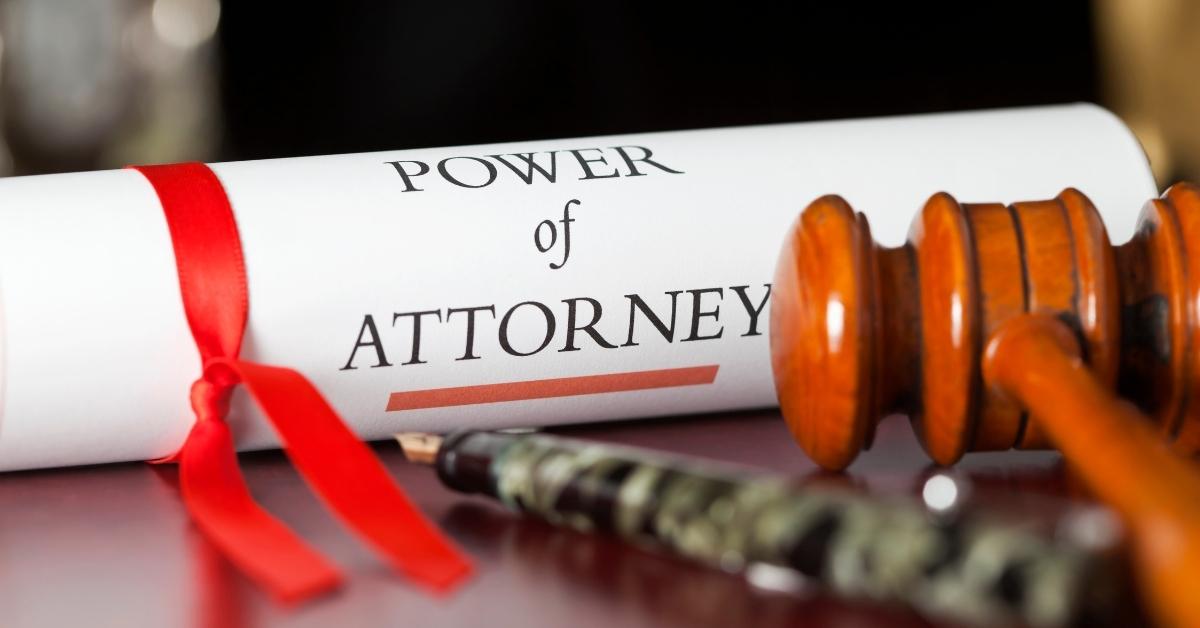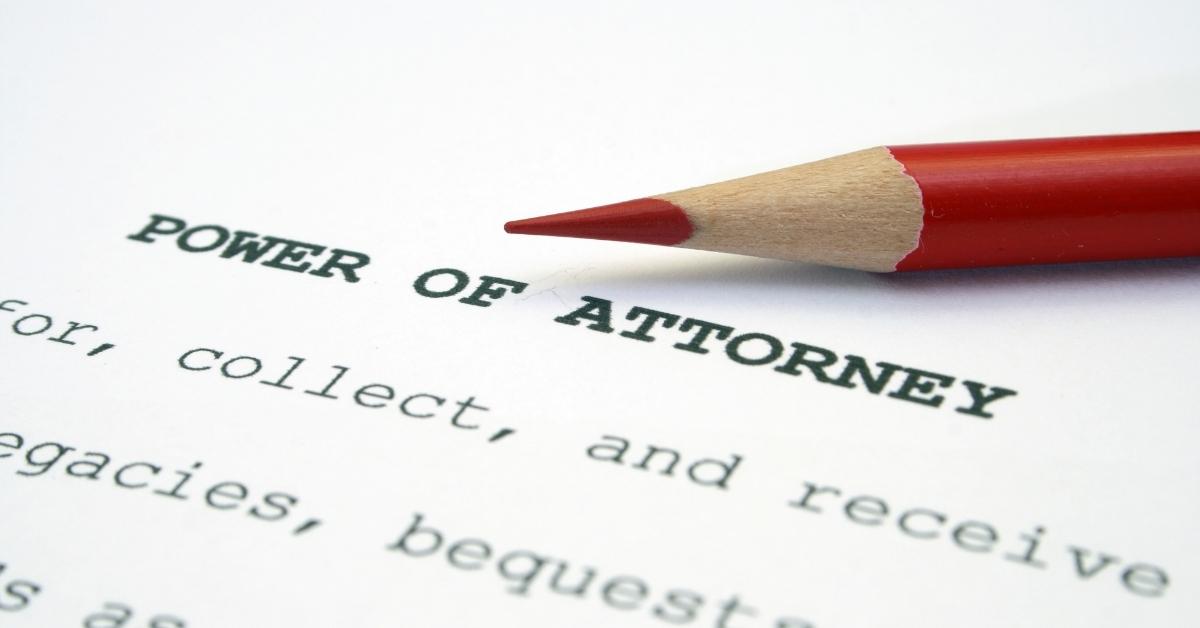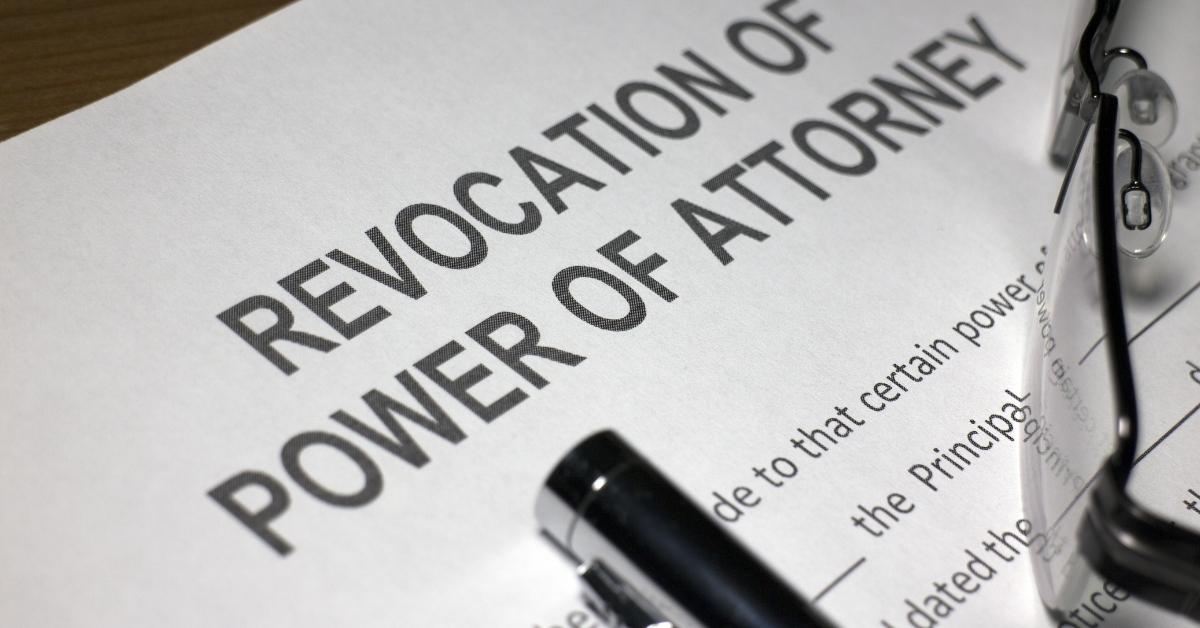A power of attorney (POA) is extremely useful if you need to act on behalf of someone else or have someone handle personal matters for you if you become incapacitated. However, they are not valid after death.
If you are planning your estate or handling the last will and testament of a loved one, it is essential to know the limitations of a power of attorney.
So, we created a guide that explains the different types of POAs, what rights each gives, how to revoke an executed power of attorney, and how to manage matters that require you to act on behalf of someone else after their death.

What is a Power of Attorney?
A POA is a document you can sign to permit someone else to act on your behalf. However, not all power of attorneys give the same authority to the holder, though. The rights granted to the holder depend on the type of POA the person signs.

Durable POA
A durable power of attorney gives the holder the right to act on behalf of the POA signer in various situations. It also provides the holder with the authority to work on the signer’s behalf if they are incapacitated. So, suppose you have a durable financial POA for someone. In that case, you can make decisions on how to handle their 401k investment accounts, dispose of real estate, and complete other financial transactions even if they are not able to themself as long as they are living.
Non-Durable POA
A non-durable power of attorney gives the holder authority to act as the agent in fact, for the signer. However, if the signer is incapacitated, the POA is voided. For example, if your parent signed a power of attorney giving you the right to make financial decisions on their behalf, but they then got in an accident that put them in a coma, that POA would no longer be valid.
Does Power of Attorney Last After Death?
Neither power of attorney is valid after the signer dies. While a durable power of attorney does give you the right to act on someone’s behalf if they are sick or injured, it does not give you the ability to act as someone’s agent after they are no longer living.
Who Has Power of Attorney When There’s a Will?
After someone dies, the POA or living heirs have to file their will with a probate court. The probate court will name an executor of the will. If the person has a will, the court will name the executor that the person named in their Last Will and Testament as the executor, giving them the ability to execute the will per the deceased’s wishes.

Who Has Power of Attorney When There’s No Will?
If there is no will, the probate court will act as the estate executor. They will do a detailed heirship affidavit to determine who has a legal claim to the estate. With no will, all of the property is divided per the laws in that state.
Estate Executor vs. Power of Attorney Agent
While someone is living, they may give you power of attorney to act on their behalf. After the person passes away, they must have named you as the executor of their estate, or the court has to do so for you to have the right to act in that capacity. However, you are not acting on behalf of the deceased person anymore. You are acting as the estate executor, which is more like a power of attorney for the estate.

What Does Someone With POA Do After a Death?
You may present your power of attorney to the court, and they may appoint you as the executor of the deceased’s estate if there is no will. However, it is up to the discretion of the probate judge.
If there is a will that names you as the estate’s executor, the court will verify the validity of the document and then ensure that the decedent’s wishes are followed.
Power of Attorney and Rights of Survivorship
Another thing that may come up after someone dies is the right of survivorship. In some states like Oklahoma, Texas, California, Washington, and a few others, spouses can add a clause to the deed that gives rights of survivorship.
That means that when one spouse dies, their interest in the property they live in passes on to the surviving spouse. Rights of survivorship are common in states with common law or community property.
How Long are POAs Good?
You can issue power of attorney to someone to cover a specific transaction. However, POAs are generally good until the principal revokes the document if it is durable. If it is non-durable, it is valid as long as the issuer is not incapacitated.

If you signed a power of attorney and no longer wish for that document to be effective, you need to revoke it by filing a revocation of power of attorney in the county where the original document was recorded.
Power of Attorney FAQs
POAs can be challenging to understand. A durable power of attorney can make life much easier if you are incapacitated and need someone to act on your behalf. However, there are limitations. Read the answers to the most frequently asked questions below to learn more.
What Rights Does Someone with a POA Have After a Death?
After someone dies, they legally have no property. Their property is held in probate until the family presents a will or the probate court divides the deceased’s estate.
Is a Durable Financial Power of Attorney Still Valid After a Death?
No, neither power of attorney is valid after someone dies. As previously mentioned, a person no longer owns the property after death. To act as that person’s agent, you must work in the estate executor’s capacity. You must submit the person’s will to the probate court and allow the court to name you as the executor.
What is the Best Form of Power of Attorney?
A General Durable Power of Attorney gives the holder the most power to act on behalf of the POA signer. The durable POA is adequate even if the person is incapacitated as long as they are still alive.
A non-durable power of attorney is only effective if the person who signs it is in a state of mind that allows them to make legal decisions. For that reason, if you have a parent or spouse who is ill, sign a POA over to you so that you can handle financial matters for them, you need them to sign a durable power of attorney.
Understanding that no power of attorney will authorize you to act on the person’s behalf after death is essential. So, they need a will that specifically names you as their estate executor if they want you to act in that capacity after their death.
Do You Understand the Validity of a Power of Attorney After Death?
A power of attorney is only valid while the signer is living, regardless of whether they signed a durable or non-durable form. To protect yourself, if a parent, spouse, or someone else wants you to handle their estate, you need to make sure they have a will that tells the court exactly how they want their estate handled.
After the person is no longer living, you must file the will with the probate court and have the estate handled legally. Otherwise, you may face legal issues when you dispose of the deceased’s property.
Even if you have a POA, once the person is no longer living, they have no property. So, using a POA to complete financial transactions, write checks to yourself, move money between the decedent’s financial accounts, or sell their property can lead to significant legal troubles, especially if the deceased has other living heirs that will contest their estate.
